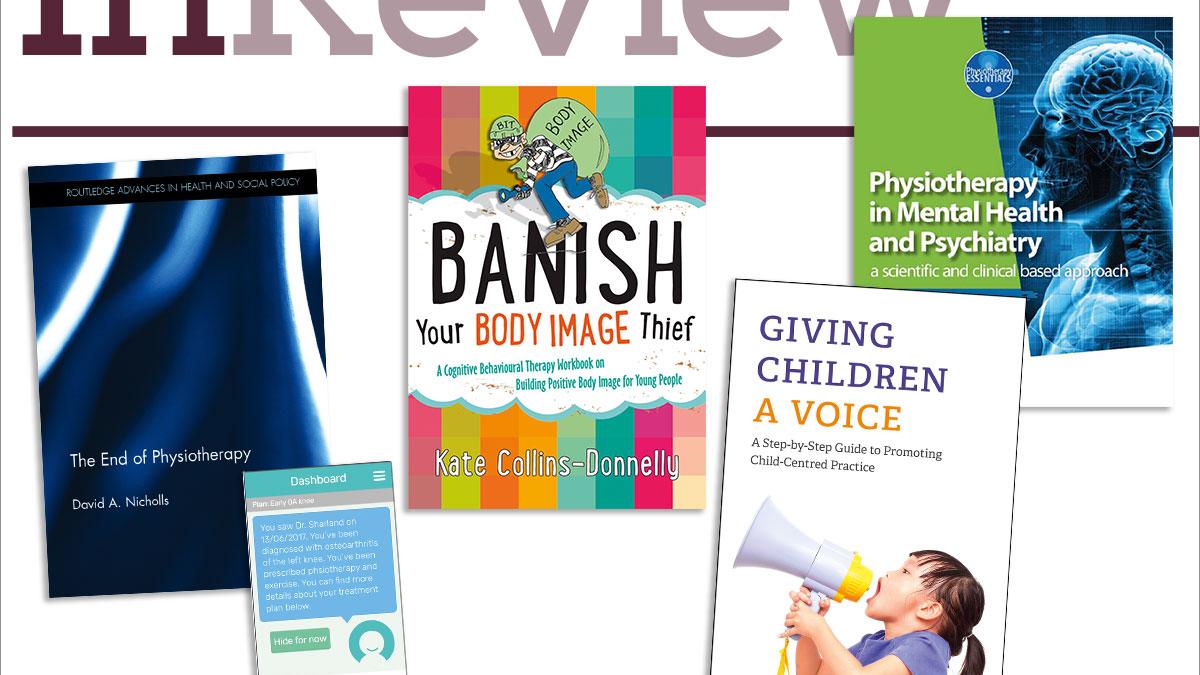Our featured book 'The End of Physiotherapy' is arriving at a critical point in its history. Since World War I, physiotherapy has been one of the largest allied health professions and the established provider of orthodox physical rehabilitation. To find out more read on...

The End of Physiotherapy David A Nicholls Routledge ISBN: 1138673552
The End of Physiotherapy – it’s a provocative title but does the content live up to it? The book feels like two in one – both with such different paces and voices that I had to remind myself that it was the same author.
David Nicholls, who is associate professor in the school of clinical sciences at Auckland University, romps through the history of the profession. He places a context, a fascinating narrative, around the history we’re all familiar with (especially if you have read Jean Barclay’s In Good Hands), from the founders of physiotherapy through the war years to the present day. From there, the pace slows as he wades through contemporary practice and the changes in how the profession operates – a trickier subject to capture.
As a feminist, I would have liked the book to go further in its exploration of the impact of the clearly political (with a small p) motives of the founders as they aligned the profession with state, authority and mainstream.
The book is not a quick read so maybe the author is right not to pursue that, given the sheer breadth of what he does cover.
For those who do want more, further reading is suggested and, most importantly, the justification for ‘what, how and why’ David Nicholls chose to focus on. Disappointingly for me, this was only revealed in the epilogue.
While questions were left unanswered, this book is important in that it offers a narrative – a story from one perspective. It shines a light on the profession’s history and practice through the dominant culture – a western-centric lens.
I hope it encourages others to tell their stories so we hear not just one voice, but many. Viewing the profession through these different lenses should create a rich and evolving picture of physiotherapy.
I’m also looking forward to the debates that stem from this. For me, it will be these discussions that determine whether the end of physiotherapy is nigh.
- Nina Paterson is the CSP’s education adviser
Physiotherapy in Mental Health and Psychiatry Editors: Michel Probst, PT, PhD and Liv Helvik Skjaerven, PT, MSc Elsevier ISBN 0702072680
Billed as ‘a must for students and practising physiotherapists and a trusted guide on the different perspectives, contexts and approaches across the spectrum of mental health and psychiatry settings’, this is a substantial textbook. It contains contributions from internationally respected practitioners, academics and researchers and is packed with relevant case studies and reflective learning exercises.
Banish your Body Image Thief Kate Collins-Donnelly Jessica Kingsley Publishers ISBN 9781849054638
A well-thought-out CBT workbook for professionals, or parents, to use with young people when they are suffering from low self- esteem at a key developmental point, aged 10 to18. This useful handbook is full of engaging exercises, personal stories, tips and coping strategies – all fun to engage in but, crucially, designed to help the young person build a positive body image and to feel more confident about themselves.
Ingenious MSK app
MSK Assist is a new app to help doctors and physiotherapists combat the increasing problems associated with obesity, physical inactivity and an ageing UK population.
Musculoskeletal conditions cost the NHS an estimated £5 billion and result in more than 100 million appointments every year in England alone.
MSKnote, a Sussex-based company, has developed a digital service with the help of InHealthcare, the digital health specialist, to help educate patients about the importance of self-managing their long-term complaints. it provides patients with a personalised print-out and dedicated mobile app.
Giving Children a Voice: A Step-by-Step Guide to Promoting Child-Centred PracticeSam Frankel Jessica Kingsley Publishers ISBN 9781785922787
This book shows how to create an environment in which the authentic voice and opinions of the child are heard. Useful for clinicians who are perhaps more comfortable – or used to – working and communicating with adults, or in dealing with parents who tend to speak for their child. It covers a variety of settings, but the aim is to recognise that the child’s voice is valid and to allow it to be heard.
Author
Nina Patterson and variousNumber of subscribers: 1




































